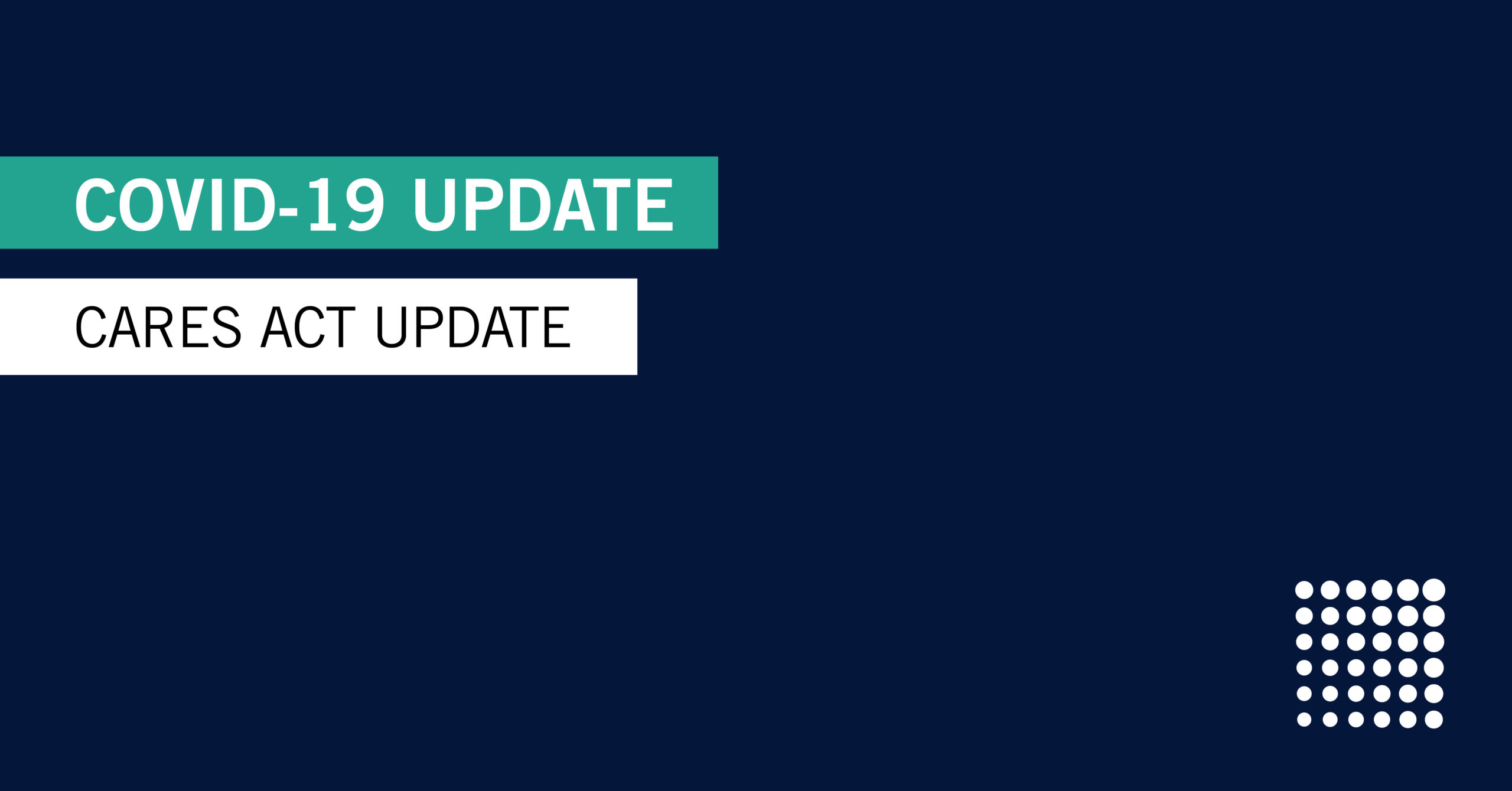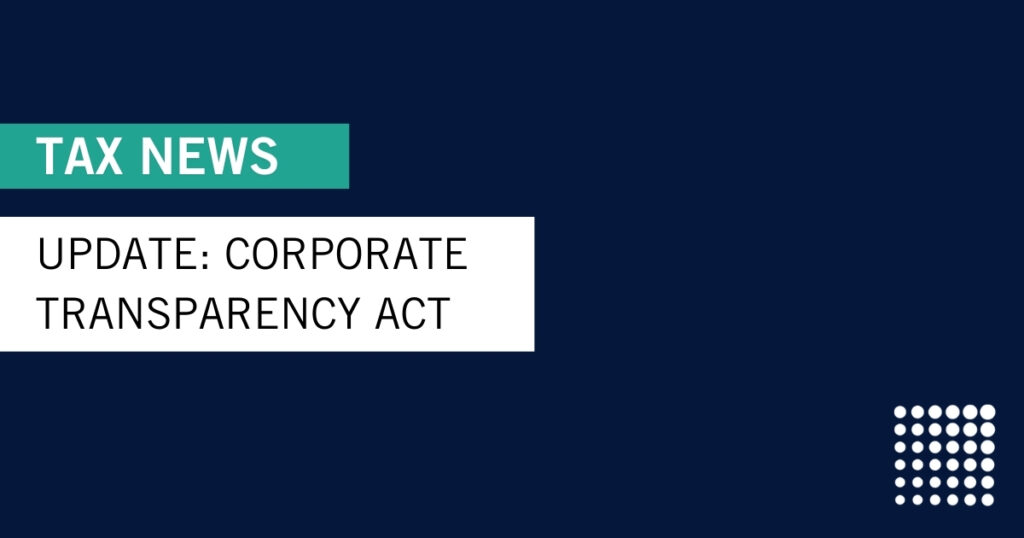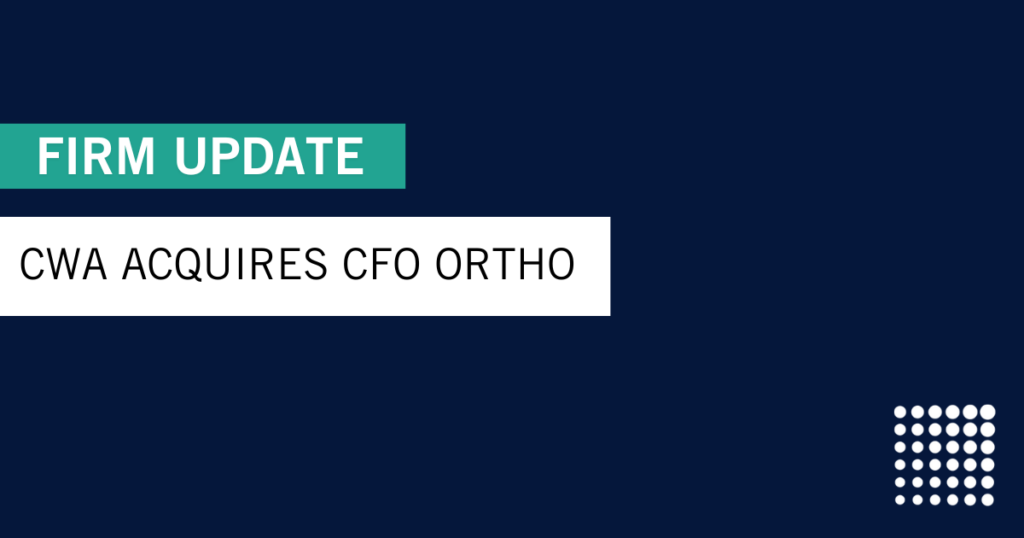A look at the broader resources offered for individuals in the CARES Act
Congress and the President put into law one of the most expansive stimulus packages in our country’s history in March. The Coronavirus Aid, Relief and Economic Security (CARES) Act is aimed at getting cash into the hands of individuals and small businesses while much of the country is forced to stay at home under quarantine, and our economy is in a partial shutdown.
In previous communications we have summarized and offered recommendations around the most notable programs created by the CARES Act, including the PPP program, EIDL grants, Employer Retention Credit and expanded unemployment pandemic assistance.
Below is a summary of the other most applicable financial relief programs and provisions of the CARES Act for individuals. We define and note how these measures could help our clients and/or their employees navigate these unprecedented economic times. Part two of this blog summarizes the additional relief options for small business owners.
RESOURCES FOR INDIVIDUALS
Recovery Rebate for Individual Taxpayers
A refundable tax credit will be provided to individuals, amounting to $1,200 for individuals and $2,400 for joint taxpayers. Taxpayers with children will receive a flat $500 for each child. The rebate phases out at $75,000 for singles, $112,500 for heads of household, and $150,000 for joint taxpayers at 5 percent per dollar of qualified income, or $50 per $1,000 earned. The rebate phases out entirely at $99,000 for single taxpayers and $198,000 for joint taxpayers.
CWA Insight: Most CWA clients will be phased out of this rebate, but it will likely apply to many clients’ employees and/or family members. Many families have started receiving these checks, but some may experience longer wait times.
Coronavirus-Related Distribution (CRD)
A new distribution is available from qualified defined contribution plans and IRAs for taxpayers facing virus-related economic challenges. The amount a participant can take is up to 100% of his or her vested balance or $100,000 maximum. The distribution can be paid back to the plan or IRA at any time during the three-year period beginning on the date after the distribution is received. To the extent not paid back, the tax on the distribution can be paid ratably over 3 years.
CWA Insight: For CWA clients that do not have easily accessible liquidity sources such as a line of credit, this could be an option for them to access cash.
401(k) Loan Provisions
The allowable loan amount on a 401(k) plan increased to 100% of a participant’s vested balance up to a maximum of $100,000. Any 401(k) plan loan payment due on a new or outstanding loan from 3/27/20 through 12/31/20 can be delayed up to one year. The 5-year term of any 401(k) loan will be extended for any period that loan payments are delayed.
CWA Insight: For CWA clients with existing loans, this provision allows them to defer payments until cash flow improves as you return to work. For CWA clients that do not have loans outstanding but that have significant 401(k) balances, this is another way to access liquidity immediately.
Waiver of Required Minimum Distributions (RMDs) Rules for Certain Retirement Plans
RMDs are suspended for the year 2020.
This provision provides relief to those who would otherwise be required to withdraw funds (and pay the associated taxes) from their retirement accounts.
CWA Insight: CWA clients that would normally be required to take a RMD from an IRA or defined contribution plan during 2020 will not have to take that distribution and pay the associated tax. Note that RMDs from defined benefit plans are still required. This provision only applies to the 2020 tax year.
Relief for Federal Student Loan Borrowers
The government has provided an automatic deferral of student loan payments for 6 months for federal student loan borrowers. This begins with payments on or after March 13 and goes through September 30, 2020. It applies specifically to direct loans by the U.S. Department of Education and Federal Family Education Loans.
There will be no accrual of interest during the deferral period.
CWA Insight: CWA clients who have federal student loans should check their online accounts to ensure no autopayments were processed during this period of time. If any were processed, the borrower has the option to get those payments refunded.
Extension of Tax Filing & Payment Deadlines
The IRS has extended the deadlines for the following filings and payment due dates for 2020:
- 2019 Extension or Timely Filed Tax Returns & Payments – normally due 4/15; now due 7/15
- Q1 2020 Estimated Tax Payments – normally due 4/15; now due 7/15
- Q2 2020 Estimated Tax Payments – normally due 6/15; now due 7/15
Most states will follow the IRS rules above, but some do not, so please check with your individual state for their most current due dates.
CWA Insight: CWA clients will benefit from the ability to defer these filings and payments to closer to when their businesses are scheduled to re-open. This will allow them to conserve the cash flow needed to sustain the mandated closures. Clients should work with their CWA planner and tax advisors on how this provision applies to them and when they should plan to file and/or make any payments.
Modification of Limitations of Charitable Contributions
The limitation for charitable contributions and carryover charitable contributions is increased from 60% to up to 100% of the taxpayer’s adjusted gross income (AGI).
CWA Insight: This would apply to a CWA client who is planning to contribute to a charitable organization at a high amount during 2020; this only applies to individuals who elect to itemize their deductions.
Additional Relief Options for Small Business Owners in the CARES Act
The goal is to prevent further economic slowdown during this health pandemic. This translates into significant opportunities for individuals and business owners to take advantage of–to be executed carefully and strategically. Please work with your CWA planner and/or CPA on the application of these provisions to your personal situation and business strategy.
For more updates and resources, bookmark our COVID-19 Resources page.














